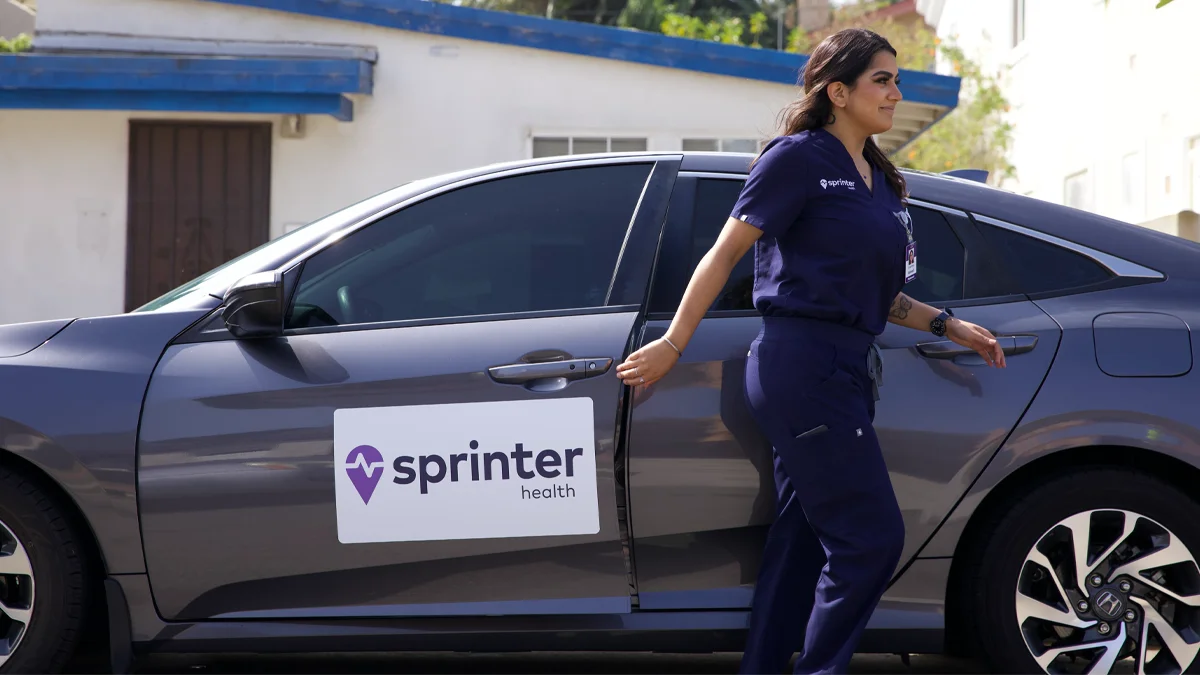Necessary Always Active
Necessary cookies are required to enable the basic features of this site, such as providing secure log-in or adjusting your consent preferences. These cookies do not store any personally identifiable data.
|
||||||
|
||||||
|
||||||
|

Sprinter Health has raised a $55 million investment to grow its at-home healthcare services, according to a report by TechCrunch. The new Sprinter Health investment round will help the company reach more patients by expanding its services to new areas.
The Series B funding was led by General Catalyst, with support from Andreessen Horowitz, Accel, Google Ventures, and the Regents of the University of California. This fresh Sprinter Health funding brings the total amount raised by the startup to $125 million.
Max Cohen and Cameron Behar, who worked at Google and Facebook, created Sprinter Health. They started the company during the pandemic when they saw that many people couldn’t easily access healthcare.
They recognized that while telehealth was growing, it did not meet every patient’s needs. Many health services could not be accessed entirely online. That is why they set up a system to provide services at home, so those who do not like going to health facilities could be helped there.
The startup has expanded fast since its launch during the COVID-19 pandemic and now operates in 18 U.S. states, up from just 5 states in 2023. Sprinter Health now focuses on in-home medical services such as blood tests, diabetes eye checks, and cancer screenings.
“We want to re-engage patients who haven’t been using the health system. The goal is to help them stay healthy for a long time,” said Max Cohen.
Sprinter Health’s team includes trained phlebotomists, medical assistants, and community health workers who visit patients at home. These professionals, called “Sprinters,” offer preventive health checkups, especially for people on Medicare and Medicaid plans.
The company’s services are free for those covered by its partner health insurance plans.
One key part of Sprinter Health’s business model is its advanced logistics technology. The company uses a smart route planning system that helps medical staff serve more patients in a day.
“We need to make sure that our employees are spending as much time as possible serving patients rather than driving,” Cohen explained.
Sprinter Health’s smart system considers factors like traffic, weather, and even parking. This allows each Sprinter to visit up to 12 patients per day. This approach helps the company maintain strong unit economics, something many home care startups struggle with.
Julie Yoo, a general partner at Andreessen Horowitz and a member of Sprinter Health’s board, compared the company to delivery giants like Instacart and DoorDash.
“There have been many home-based care companies that have failed because it’s really hard to make the unit economics work when you are deploying humans into the field. Unless you have very tight operating systems, it’s really hard to build a business that can be sustainable and durable over time.” Yoo told TechCrunch.
The company’s smart ways of moving medicines help bring down costs and allow Sprinter Health to care for more patients. Because of this, they have a major advantage compared to others in healthcare.
With the new funds, Sprinter Health will attempt to enter more states and offer health solutions to a larger number of patients across the United States.